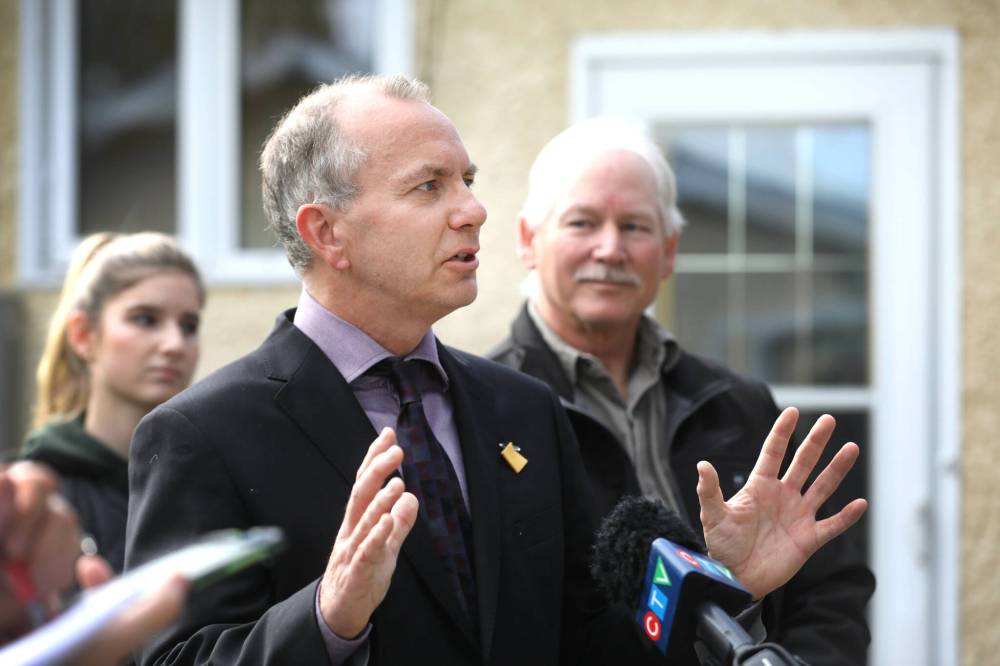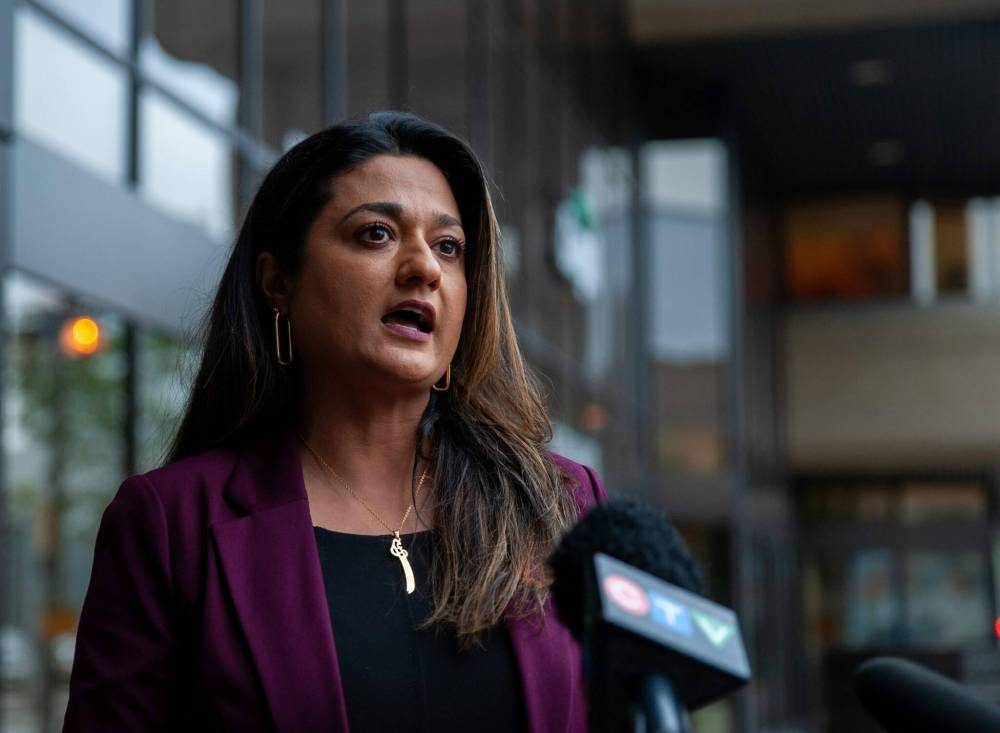Loney hopes voters warm to heat-pump plan
Advertisement
Read this article for free:
or
Already have an account? Log in here »
To continue reading, please subscribe:
Monthly Digital Subscription
$19 $0 for the first 4 weeks*
- Enjoy unlimited reading on winnipegfreepress.com
- Read the E-Edition, our digital replica newspaper
- Access News Break, our award-winning app
- Play interactive puzzles
*No charge for four weeks then billed as $19 plus GST every four weeks. Offer only available to new and qualified returning subscribers. Cancel any time.
Read unlimited articles for free today:
or
Already have an account? Log in here »
Hey there, time traveller!
This article was published 25/09/2022 (822 days ago), so information in it may no longer be current.
Shaun Loney is proposing a “big switch” that aims to ensure 40,000 Winnipeg homes and businesses replace natural gas with greener heating options by 2030, if he’s elected.
The mayoral candidate promised to create a program that helps property owners obtain geothermal or cold climate air-source heat while still paying energy bills that are equal to or lower than what they’d pay for natural gas.
“One of the myths is that geothermal heat pumps cost money. The opposite is true. Geothermal systems save money,” said Loney.
The candidate said the new systems would most likely be added first to new homes, those undergoing major renovations and properties where natural gas equipment is nearing the end of its useful life.
RUTH BONNEVILLE / WINNIPEG FREE PRESS Shaun Loney promised to create a program that helps property owners obtain geothermal or cold climate air-source heat while still paying energy bills that are equal to or lower than what they’d pay for natural gas.
Under the plan, Winnipeg’s water and waste department would expand to become the water, waste and heat department. It would borrow money to pay for and install underground loops to support geothermal heat pumps, removing a significant cost for the homeowner.
For example, Loney said the owner or the average 1,200-square-foot bungalow could expect to pay $25,000 for a geothermal heating system. He said about $10,000 of that tab would be covered through existing federal and provincial government grants, while the city would contribute $8,000 to install a ground loop homeowners could connect to for heat. A homeowner would also be expected to cover about $7,000 for a heat pump system.
Loney said the heat pump price is about the same cost as a standard furnace, so it evens out in new builds or when an existing furnace requires replacement. He said interest-free federal green loans are also available to assist with the cost.
The property owner would also pay the city about $50 to $60 a month for access to the heat source for about 20 years, which would be expected to reduce their annual energy bill by about $700 to $800, he added.
Loney said the water, waste and heat department would borrow up to $27 million by 2030 to cover its upfront costs, which the property-owner fees would fully cover.
“The revenue stream… would exceed the cost of borrowing,” he said.
A second target would also aim to phase out extensions of natural gas to new residential developments by the end of his first term of office.
The plan offers a major opportunity to reduce greenhouse-gas emissions, he said.
“We cannot meet our climate goals without switching away from natural gas,” he noted.
Loney said the savings from switching to geothermal heat will only grow as carbon taxes rise.
Although he founded Aki Energy, a non-profit that installs geothermal heating systems at Manitoba First Nations, Loney said he would not benefit financially from his plan for the city.
“I have no financial interests in any of these social enterprises at all,” he said.
ETHAN CAIRNS / FREE PRESS FILES Rana Bokhari said she would reopen the intersection at Portage Avenue and Main Street to pedestrians.
Meanwhile, mayoral candidate Rana Bokhari said she would reopen the intersection at Portage Avenue and Main Street to pedestrians, if she’s elected. Bokhari said she’s primarily concerned that some Winnipeggers with disabilities have found the site difficult to navigate.
“Any movement that we take towards equality, yes, there will always be a cost to that…. But (it’s a greater cost) to have people feel that we don’t have an accessible city,” she said.
In a 2018 plebiscite, 65 per cent of Winnipeggers voted against the long-debated idea of reopening the crossing to foot traffic. Mayor Brian Bowman promised to respect the non-binding vote.
Opponents of the change have argued it would cost millions of dollars and snarl traffic.
MIKAELA MACKENZIE / FREE PRESS FILES Jenny Motkaluk vowed to help rejuvenate the city’s urban forest by replacing 14,000 public trees.
Mayoral hopeful Jenny Motkaluk vowed to help rejuvenate the city’s urban forest by replacing 14,000 public trees, planting two for each one cut down and speeding up the tree pruning cycle to once every seven years.
“Winnipeg’s urban forest is one of the jewels that makes life worth living in Winnipeg…. Our urban forest is facing a catastrophic decline because we’ve failed to maintain it,” said Motkaluk.
While she did not offer a cost estimate for the promises, she expects her plans to attract more development, suggesting the city will save enough money through lean management practices within departments to cover the tab.
If he’s elected, mayoral hopeful Rick Shone promises to allow homeowners to choose naturalized lawns instead of grass. He would also create incentives to entice the replacement of surface parking lots with green spaces and the addition of vegetation to absorb stormwater.
Mayoral candidate Idris Adelakun put out a long list of platform promises Monday, including pledges to fund more 24-hour safe spaces, convert older homes into low-barrier housing and fast-track sewage upgrades.
Winnipeggers will elect their next mayor and council on Oct. 26.
Joyanne.pursaga@freepress.mb.ca
Twitter: @joyanne_pursaga

Joyanne Pursaga
Reporter
Born and raised in Winnipeg, Joyanne loves to tell the stories of this city, especially when politics is involved. Joyanne became the city hall reporter for the Winnipeg Free Press in early 2020.
Our newsroom depends on a growing audience of readers to power our journalism. If you are not a paid reader, please consider becoming a subscriber.
Our newsroom depends on its audience of readers to power our journalism. Thank you for your support.



